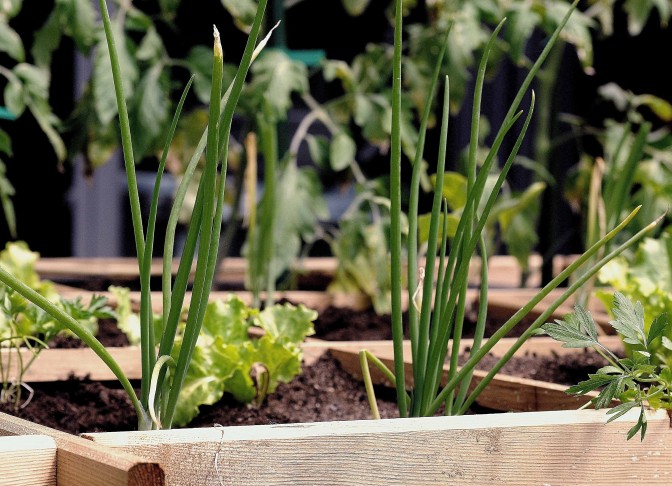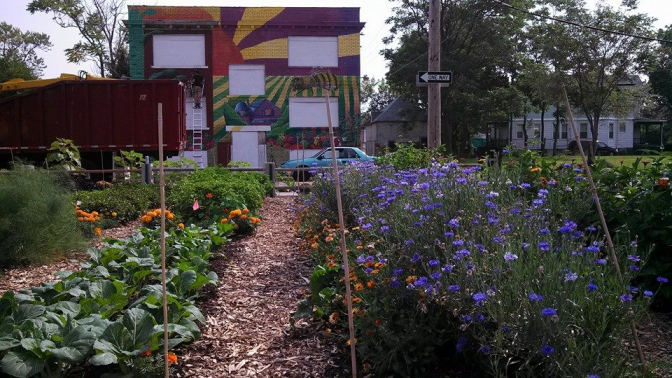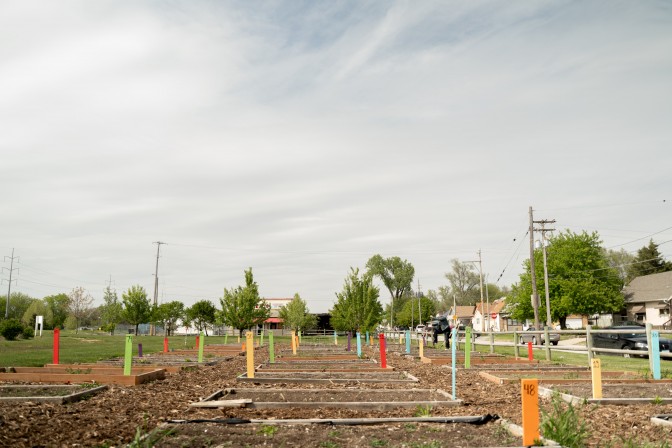Sustain’s submission to the draft version of the National Preventive Health Strategy
Dietary-related ill-health and mental illness cost Australia around $200 bn every year. As we've said in the National Pandemic Gardening Survey report, for a fraction of this cost we could improve access to edible gardens and urban food production and vastly impact the state of preventative health.
The Department of Health is currently seeking the public's input on the draft National Preventive Health Strategy until Monday, 19 April 2021. The Strategy directly references access to urban agriculture and community gardens, and greater access and availability of safe and nutritious food.

Below is Sustain's response to the community consultation survey questions.
Do you agree with the vision of the Strategy?
In principle Sustain agrees with the vision of the Strategy. In particular, the focus area of ‘Improving access to and the consumption of a healthy diet. The estimated costs of dietary-related ill health and mental illness in Australia are a staggering $200 billion every year. With COVID-19 and the climate emergency, we need more innovative policy strategies for mitigating these costs.
Dr Kelly Donati and Dr Nick Rose 2020, ‘Findings and Action Agenda from the 2020 National Pandemic Gardening Survey, William Angliss Institute.
Do you agree with the aims and their associated targets for the Strategy?
Sustain agrees with the aims and associated targets to the Strategy. In particular, that ‘Investment in prevention is increased’. In 2020, Sustain undertook the national Pandemic Gardening Survey, in which 9,140 Australians spoke of the immense power that edible gardening has to do good and have asked for government action. Sustain is calling for the establishment of a $500 million national Edible Gardening Fund to be co-financed by federal and state/territory governments to drive a mass expansion of urban food production across Australia as a preventative health measure.
Despite its documented benefits for ecological, mental and physical wellbeing, edible gardening currently receives limited government support. For a tiny fraction of our current annual health expenditure, the return on investment would be enormous. A meta analysis of the health benefits of gardening undertaken by Soga et al. showed gardening can improve physical, psychological, and social health. Gardens and gardening also improve the health of people with chronic diseases, such as cardiovascular disease, chronic respiratory disorders and cancer, which remain a significant cause of death globally.
Masashi Soga, Kevin J. Gaston, Yuichi Yamaura 2017, ‘Gardening is beneficial for health: A meta-analysis’, Preventative Medicine Reports.
Michelle Howarth, Alison Brettle, Michael Hardman 2020, ‘What is the evidence for the impact of gardens and gardening on health and well-being: a scoping review and evidence-based logic model to guide healthcare strategy decision making on the use of gardening approaches as a social prescription, BMJ Open.
Do you agree with the principles?
Sustain agrees with the principles but would argue that given the whole of community approach required to implement the Strategy some further principles are required to inform the development of policy. Examples of each additional principles are given in the context of Target 2 -‘Improving access to and the consumption of a healthy diet -
Healthy environments: Our food system should actively maintain the health and integrity of the natural environment on which it depends, seeking to maintain the health of existing ecosystems and enhance biodiversity.
Economic sustainability: Our food system should support, create and sustain local and regional- livelihoods while building a resilient food industry.
Proactive politics: Governments and organisations should collaborate and work holistically, both internally and externally, while proactively engaging with communities to inform policy, planning and legislative actions relating to environmental stewardship, food security, health and wellbeing, and urban and regional livelihoods.
Cultural wellbeing: Our food system should embrace the diverse and cultural significance of food, recognising its central role in promoting social cohesion, life-long and intergenerational learning, and community health and wellbeing.

Do you agree with the enablers?
Sustain agrees in principle with the seven system enablers identified in the Strategy. Sustain would argue that many organisation and government policy areas—including health, planning, transport, infrastructure, economic development, education, trade, biosecurity and environment—are relevant to the food system which is a key policy lever in achieving the focus area in the Strategy of ‘Improving access to and the consumption of a healthy diet. A coherent long-term food policy, at whatever level and scale of governance, needs to enable the integration of these different areas.
Cities and regions need a sustainable, fair and resilient food system that provides dignified access to healthy food for all citizens, offers viable livelihoods for local producers, and engenders careful stewardship of regional ecosystems. Sustain recognises and celebrates the leadership that many Australian farmers at all scales and in all places –rural, regional and urban/peri-urban - are providing to help us transition to a Regenerative Food System that is ecologically sustainable, economically prosperous, and culturally connecting and healing.
Do you agree with the policy achievements for the enablers?
While we agree in principle with the enablers, it’s not clear how the policy achievements for the enablers will address the protective factors known to remedy root causes of poor health as described on pages 12 – 17 of the draft strategy or the targets areas on pages 43 – 65. They read more as a set of principles that should reflect existing ways of working within the various layers of the health system rather than an achievement at a future date. We would like to see more explicit policy achievements that are outward looking that support the broader community to work with the health system on a holistic basis to grapple with the public health crisis the community is experiencing.
Do you agree with the seven focus areas?
Sustain welcomes the inclusion of focus area 2 - Improving access to and the consumption of a healthy diet. In 2020, Sustain undertook the national Pandemic Gardening Survey in in which 9,140 Australians responded. Key findings were that edible gardening:
- was a source of good food for those who need it most
- was very important to their mental health
- contributed to a sense of focus and reduced anxiety for many
- contributed to diverse and healthy diets
- was a source of sharing and connection.
As Australians turned to their gardens last year to manage the stresses of the pandemic, nurseries and seed suppliers sold out of stock. Of the more than 9,000 Australians who took part in Sustain's Pandemic Gardening Survey:
- 62 per cent said gardening meant a great deal to them during the crisis
- another 20 per cent said "they could not have made it through the pandemic" without it.
The survey's insights shouldn't be ignored and Sustain is calling for the creation of a $500m National Edible Gardening fund to drive urban agriculture nationally.
When edible gardening is integrated into the school environment children who participate in gardening, nutrition and cooking classes ate, on average, a half serving more vegetables per day than they did before the edible gardening program. Similarly, a recent study of community gardens, has suggested that those involved in growing in the community have a better diet and health outcomes. Edible gardening also has direct benefits for other preventative target areas in the Strategy in relation to increased physical activity and protecting mental health.
Mead B.R., Christiansen P., Davies J.A.C., Falagán N., Kourmpetli S., Liu L., Walsh L. & Hardman C.A. 2021 ‘Is urban growing of fruit and vegetables associated with better diet quality and what mediates this relationship? Evidence from a cross-sectional survey’ Appetite Volume 163, 1 August 2021, 105218.
Schoen, V., Caputo, S. & Blythe, C. 2020 ‘Valuing Physical and Social Output: A Rapid Assessment of a London Community Garden’ Sustainability 2020, 12(13), 5452
Do you agree with the targets for the focus areas?
In relation to access to and consumption of a healthy diet the targets seem reasonable however, the targets could better relate to lifestyle changes people can make to lower their risks of preventable food related illness such as:
- Lowering alcohol intake
- Increasing dietary intake fruits, vegetables – as well as whole grains, legumes, nuts, seeds
- Lowering intake of red meat
- Increasing consumption of nutrient dense traditional and lacto-fermented foods
Do you agree with the policy achievements for the focus areas?
Sustain would like to see the policy actions in Target area 2 have stronger links back to the known protective factors outlined in pages 12 – 17 of the strategy for example, access to food via community gardens. In relation to the specific policy achievements Sustain recommends some additional policy achievements:
- Decreased structural and environmental barriers to fresh food, for example increased urban farms, market gardens, and school kitchen gardens.
- Reducing the density of existing fast food outlets clustered around educational and healthcare facilities.
- Prohibiting the opening of new fast food outlets within 1km of educational and / or healthcare facilities.
- Update planning and environment legislation in every State and Territory to include urban agriculture as a permitted use of land in residential, commercial and mixed-use zones.
Continuing strong foundations. Do you agree with this section of the Strategy?
Sustain would like to see obesity or other preventative food related illnesses in figure 7.

Please provide any additional comments you have on the draft Strategy.
Sustain would like to present the Australian government an example of a vignette in relation to target area 2 - Improving access to and the consumption of a healthy diet, should a commitment to an edible gardening fund be supported and it’s projected impact on community health by 2030 -
Compared to the early 2020’s, Australians now have an increased awareness of the importance accessing and consuming a healthy diet. Back then, there were concerns that children would die before their parents as a consequence of childhood obesity. Now, consumption of fruit and vegetables has increased and the proportion of adults consuming high sodium, sugar and processed foods has decreased. People have ongoing access to adequate and affordable healthy food options.
A generation of young people have been edible gardening for their entire primary school years with sustained education on food systems, nutrition, cooking and gardening embedded in the curriculum. Fruit consumption has increased from 60% eating two serves a day to 90%, and vegetable consumption from of 5 serves a day from 5% to 50%.
Local councils have removed roadblocks and unlocked vacant land with food gardens on verges and in every new development, and community gardens in every suburb. This has been networked, coordinated and supported at every level with policy commitments and targets. More people than ever are eating fresh fruit and vegetables.
Physical activity has increased with more people gardening in their own yards, walking their streets to pick produce from edible verge spaces or to visit their local community garden or produce market. There has also been a significant improvement to people’s mental health, with more people connecting with each other through food and cultural events celebrating harvest and local food traditions. People are eating culturally appropriate foods that are both nutritious and delicious and celebrating their cultural heritage and traditions through food.
There has been a significant reduction in cardiovascular disease, obesity and type 2 diabetes with more adults than ever eating a variety of fresh fruit and vegetables sourced from local produce markets which are supplied by urban farms and market gardens. Thousands of people have participated in urban food-based community development, skills building and food security projects. Schools and universities have integrated edible gardening citizen science research programs into the curriculum. The explosion of consumption of a healthy diet has provided employment for 10000 trainees from ATSIC, migrant and disadvantaged backgrounds to access skills-based training and apprenticeships in urban agriculture, market gardening and related fields.
This was all achieved with:
- Sustained, coordinated and proactive action at all levels of government
- Genuine codesign with communities
- A funded commitment to an edible gardening fund
- Healthy food systems education embedded in schools
- A recognition of the need to make fresh food available in all communities and to recognise cultural and local food diversity.
- The health sector has led by example and health facilities – eg Dr’s, Specialists, Hospitals have converted their garden spaces into edible community based gardens informed by regenerative principles, and social and green prescribing is the norm.
- Preventative measures have been taken and the density of fast-food outlets, particularly around education and health facilities has decreased
- Communities have taken direct action on climate change by rapidly decarbonising their food supply by building regenerative food systems and have increased resilience by decreasing reliance on global supply chains.